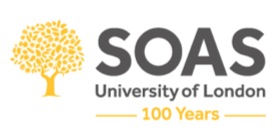Time: 13:00-15:00 (UK Time), Wednesday, 15 November 2023
Presenters: Ahmed Khan, University of Essex & Dr. Philip Kostov, UCLAN
Chair: Prof. Victor Murinde, SOAS University of London
Online venue: Click here to join the seminar on Microsoft Teams (For any inquiry about how to join the online seminar, please contact Dr. Meng Xie at xm1@soas.ac.uk)
Abstract
This paper explores the implications of the digital transformation of the financial sector. With focus on the UK and India, we investigate the trends and impact on trade and foreign direct investment (FDI) in FinTech and related financial services. The UK, a pioneer in financial services, and India, a rapidly developing prowess in ICT-related FDI and exports, provide two contrasting poles in the relationship between FDI and trade in fintech related services. The paper examines the dynamics of FDI and trade in FinTech, considering factors like digital connectivity, tech startups, and trade barriers, with a global context including the EU, US, and the rest of the world. It also delves into the role of FDI and trade in FinTech for job creation, impact of FinTech investment on economic growth and the substitution of international trade in FinTech with FDI. The role of regulation is also assessed in fostering FinTech FDI and global trade. The empirical study employs a new dataset, combining information on FDI projects, bilateral trade volumes, and relevant variables to assess the landscape of FinTech trade and investment. The data analysed highlights a boost in FinTech FDI and trade volumes recently, with significant gains post-pandemic and post-Brexit in terms of output and input for both India and the UK. The numbers also suggest at a substitutional effect for FinTech services exchange – moving from trade to FDI – for the two economies concerned.
Keywords: FinTech, FDI, bilateral trade, infrastructure connectivity, financial services regulation, substitution
This seminar is part of the four special sessions of the research project on UK-India Bilateral Trade in FinTech and FinTech-enabled Services: Emerging trends and potential for growth (Grant Ref: ES/T016213/1).
Presenters
Dr. Philip Kostov is a Reader in Quantitative Economics at the Lancashire Business School, University of Central Lancashire. He has a diploma of Higher Education in International Economic Relations (equivalent to MSc), Higher Institute of Economics (University of National and World Economics), Sofia, Bulgaria, 1994 and followed it up with a PhD in Agricultural Economics, University of Newcastle upon Tyne, 2001. Philip has published widely in a variety of journals such as Journal of Agricultural Economics, European Review of Agricultural Economics, Scottish Journal of Political Economy, and has taken part in a range of research projects. He has a wide range of research interests. Most of these relate to quantitative methodologies such as spatial econometrics, model selection issues; quantile treatment effects; counterfactual distributions, nonparametric and semi-parametric models, and their empirical applications. The thematic areas in which Philip has worked (and continues to do so) are equally diverse including areas such as development, agricultural economics and general economics, regional studies, finance, corporate governance, and financial technologies.
Mr. Ahmed Khan is a Research Officer of the research project on the “UK-India Bilateral Trade in FinTech and FinTech-enabled Services: Emerging trends and potential for growth”, (Grant Ref: ES/T016213/1), at the University of Essex. He obtained a BBA from the Institute of Business Administration, Karachi (Pakistan) before working as a Portfolio Manager at Bank Alfalah – a major commercial bank in Pakistan. In 2021-2022, he pursued a MSc in International Development: Public Policy & Management from the Global Development Institute at the University of Manchester. As Research Officer for the project, Ahmed is experienced in gathering and processing data, drafting policy papers, and contributing to the overall research.



